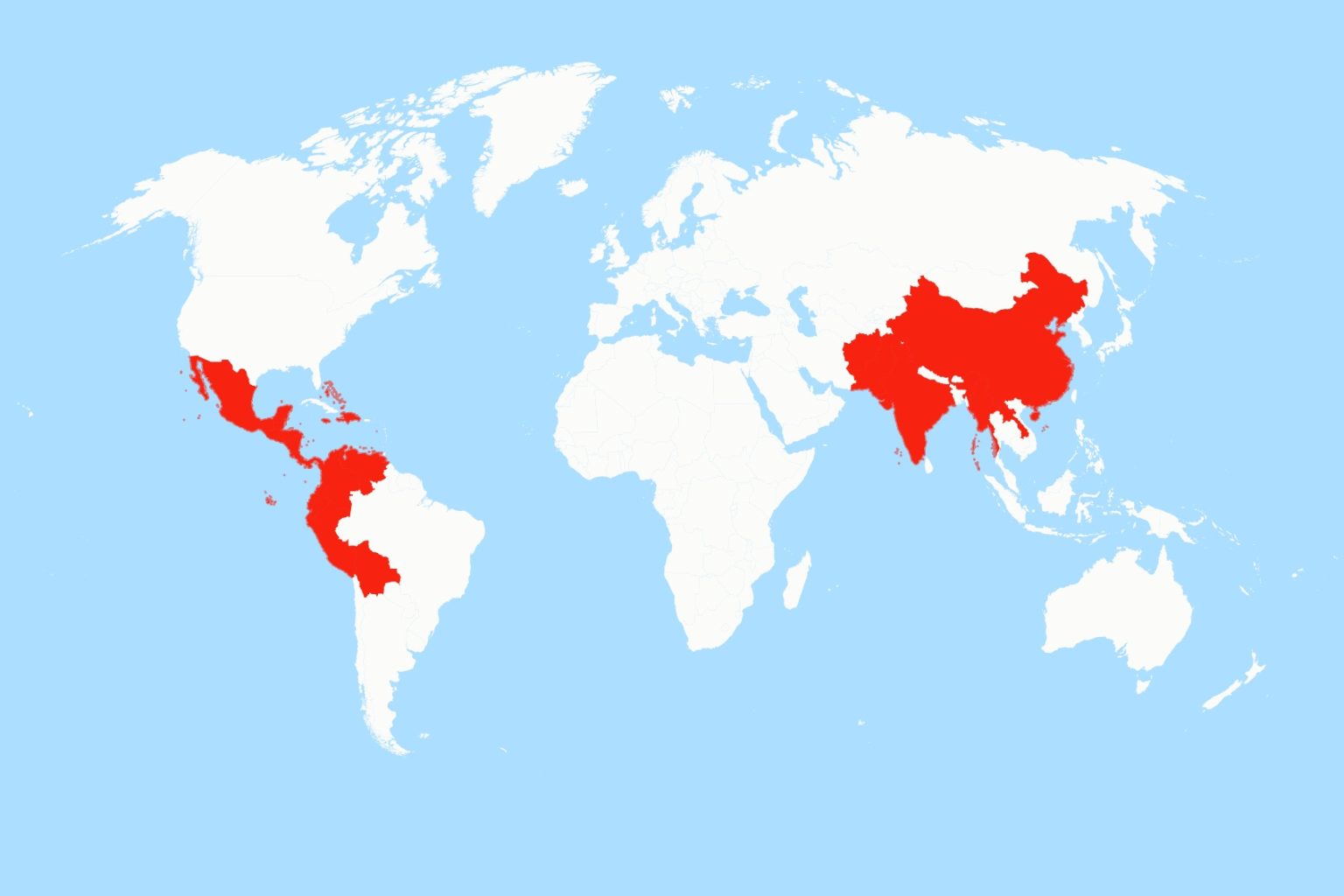Trump Administration Escalates Global War on Drugs, Straining Relations with Colombia
In a significant shift in U.S. foreign policy, the Trump administration has placed Colombia on its list of countries that have “failed demonstrably” to combat drug trafficking, marking the first time in nearly three decades that America’s close South American ally has received this designation. The presidential determination, which was released Monday, identifies 22 countries as major drug transit or illicit drug producing nations, with five of them—Afghanistan, Bolivia, Burma, Colombia, and Venezuela—singled out for particular criticism. This move has sent shockwaves through diplomatic channels, especially in Bogotá, where President Gustavo Petro has expressed dismay at what he perceives as a failure to recognize Colombia’s sacrifices in the war against drugs.
The designation carries both symbolic and practical significance for U.S.-Colombia relations, which have historically been strong despite occasional tensions. President Petro voiced his frustration with the decision, highlighting the “tens of deaths among police officers, soldiers and civilians who were trying to impact the trafficking of cocaine.” This sentiment reflects the complex reality of Colombia’s position as both the world’s leading producer of cocaine, according to the United Nations Office for Drug and Crime, and a nation that has devoted substantial resources to combating the drug trade. Colombian authorities regularly seize hundreds of metric tons of cocaine and destroy vast areas of coca crops, positioning themselves as frontline soldiers in a war that many in the country feel is fought at their expense but driven by foreign demand.
The Trump administration’s approach represents a hardening stance in America’s decades-long war on drugs, combining country decertifications with terrorist designations for cartels and transnational criminal organizations. The inclusion of Colombia alongside traditional U.S. adversaries like Venezuela—where the administration accuses President Nicolás Maduro of leading “one of the largest cocaine trafficking networks in the world”—suggests a willingness to apply pressure even on traditional allies. Recent military actions underscore this aggressive posture, with Trump highlighting strikes against vessels allegedly carrying drugs from Venezuela, including an operation that resulted in three fatalities.
While the presidential determination acknowledges that a country’s inclusion on the broader list of 22 nations does not necessarily reflect poorly on its counter-narcotics efforts or cooperation with the United States, the specific designation of having “failed demonstrably” carries stronger implications. For Colombia, this represents a significant diplomatic setback and potential threat to bilateral cooperation. The Trump administration’s decision to place Colombia in the same category as Venezuela—with which the U.S. has a deeply antagonistic relationship—may be interpreted as a warning shot across the bow of Petro’s government, signaling dissatisfaction with recent policy directions or cooperation levels despite the country’s documented efforts to combat drug trafficking.
Among the other nations designated as having “failed demonstrably,” there were nuanced assessments. Bolivia, for instance, received cautious praise for taking “some positive steps” to increase cocaine seizures and collaborate with U.S. law enforcement in bringing drug criminals to justice. Afghanistan’s situation presents a different challenge, as the presidential determination noted that despite the Taliban’s nominal ban on illegal drugs, drug stockpiles and production continue to sustain the flow of narcotics to international markets. Burma (Myanmar) remains on the list as well, reflecting ongoing concerns about drug production in the Golden Triangle region of Southeast Asia, particularly methamphetamine and opium.
Looking ahead, the Trump administration’s actions suggest an intensification of counter-narcotics operations, particularly in the Caribbean, where recent military strikes against vessels suspected of drug trafficking indicate a willingness to use force to interdict shipments. The inclusion of Colombia on the list of nations that have “failed demonstrably” points to a broader, more aggressive campaign against narcotics that may strain relationships with traditional partners and complicate regional cooperation. As this policy unfolds, it will likely test the resilience of U.S.-Colombia relations and reshape the landscape of international drug control efforts, potentially pushing countries to adopt more hardline approaches to avoid American censure while raising questions about the effectiveness and equity of current strategies in addressing the global drug crisis.


